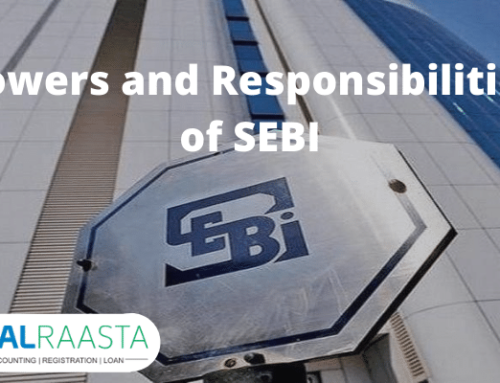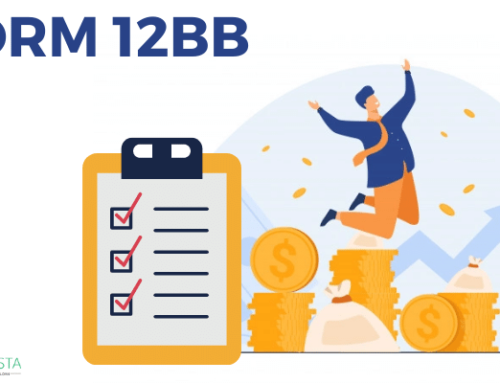What is a Dematerialisation Account (Demat Account)?
Contents
- What is a Dematerialisation Account (Demat Account)?
- Types
- There are mainly three types of Demat account:
- What advantages does a Demat Account provide?
- What documents are needed to open a Demat Account?
- Proof of Income
- Identity Verification
- Address Verification
- What is the procedure for opening a Demat Account?
Investing in real stock shares includes a lengthy process, a lot of paperwork. This account is necessary to keep the entire process simple and fast. Demat accounts are used to hold shares and securities in a dematerialized/electronic state while trading online. Dematerialization is the process of converting your share certificates from physical to electronic form in order to make them more accessible. To settle trades electronically, you’ll need a Demat Account number. If you wish to invest in the stock market, you need to have this account. It ensures that the entire process of stock trading is safe and efficient.
You can buy shares and store them safely with the help of this Account. It’s similar to a bank account in which you deposit money with the bank and keep track of your debit and credit balances in a bank passbook. Similarly, whether you buy or sell shares, your Demat Account will be credited or debited accordingly. It can be used to store a wide range of investments, including stocks, ETFs, mutual funds, bonds, and government securities. You can register a Demat Account without owning any shares and keep your account balance at zero.
Types
There are mainly three types of Demat account:
1. Regular Demat Account
It is only for Indian residents who live in the country
2. Repatriable Demat account
This type of Demat account id only for Non- Indian Residents. It helps in transferring money abroad. But this Demat account has to be linked with the NRE bank account
3. Non-repatriable Demat account
This type of Demat account is also applicable on NRI’s. But in this type of Demat account transferring of funds is not possible. It has to be linked with an NRO account.
What advantages does a Demat Account provide?
- Transfer of ownership
This is used to transfer an investor’s stock holdings. In order to undertake share trading, a Delivery Instruction Slip (DIS) might be used. You can fill out this slip with all of the necessary information to ensure a seamless transaction.
- Availability of a loan
The securities in the Account may be used to qualify for a range of bank loans. These securities can be used as collateral to secure a loan from your bank.
- Dematerialization & rematerialization
Converting securities into multiple forms becomes a straightforward procedure if you have a Demat Account. You can offer your depository participant (DP) the required instructions for dematerialization, which is the process of converting physical share certificates into electronic form. Alternatively, you can have electronic assets converted to physical securities to meet your needs.
- Accessible in a variety of ways
A Demat Account can be accessed through a variety of media due to its electronic operation. You can use the Internet to undertake investing, trading, monitoring, and other security-related operations on a computer or smartphone.
- Corporate behavior
Having a Demat Account allows you to take advantage of the perks that come with owning stocks. When a corporation pays dividends, interest, or refunds to its investors, all Demat account holders automatically receive these benefits. Corporate actions involving equity shares, such as stock splits, right shares, and bonus issues, are also updated in the shareholders’ Demat Accounts.
- Demat accounts are being frozen.
Demat account holders can freeze their accounts for a set period of time, depending on their needs. This is done to prevent any unexpected debits or credits to the Demat Account.
- E-Facility
The National Securities Depository Limited (NSDL) continues to offer a variety of services to Demat account customers. The account holder can transmit instruction slips to the depository participant electronically instead of physically submitting them. It’s done to make the procedure go more quickly and smoothly.
What documents are needed to open a Demat Account?
You may think of this account as a bank account that holds securities rather than cash. The Demat account opening procedure and the mandatory documents required are similar across organizations. Check that any document with an expiration date is still valid on the submission date before submitting it.
Proof of Income
You may use any of the following as proof of income:
- A photocopy of the Acknowledgement Slip for the Income Tax Return (ITR) was submitted to the Income Tax Department during tax filing.
- A photocopy of the yearly statement of accounts validated by a Chartered Accountant or a certificate of net worth.
- Form 16 or the current month’s salary slip
- A statement of the Account holdings with a Depository Participant who is eligible.
- The most recent bank account statement, which includes the revenue history for the previous six months.
- Any paperwork proving asset ownership by self-declaration.
Identity Verification
As proof of identity, you may use any of the following:
- A genuine photograph is required for the PAN card.
- Aadhaar card, voter ID card, driver’s license, and passport are all acceptable forms of identification.
- Central/State Government and its Departments, Statutory/Regulatory Authorities, Public Sector Undertakings, Scheduled Commercial Banks, Public Financial Institutions, University affiliated Colleges, Professional Bodies such as ICAI, ICWAI, ICSI, Bar Council, and Credit/Debit cards issued by Banks all issue identity cards with the applicant’s photo.
Address Verification
You may use any of the following as proof of address:
- Passport/Voters Identification Card/Ration Card/Registered Residential Lease or Sale Agreement/Driving License/Flat Maintenance bill/Insurance Copy
- Utility bills that are less than three months old, such as landline phone bills and electricity/gas bills.
- A bank passbook that is no more than three months old is required.
- Judges of the High Court and Supreme Court self-declared their new addresses.
- Address evidence from bank management of Scheduled Commercial Banks/Scheduled Co-Operative Banks/Multinational Foreign Banks, Gazetted Officer / Notary public, Member of Legislative Assembly, Member of Parliament
- Identity cards with addresses are issued by the Central/State Government and its Departments, Statutory/Regulatory Authorities, Public Sector Undertakings, Scheduled Commercial Banks, Public Financial Institutions, University affiliated Colleges, and Professional Bodies such as the ICAI, ICWAI, ICSI, and the Bar Council.
- Proof of address in the name of the spouse
What is the procedure for opening a Demat Account?
Follow these simple instructions to start this Account:
- To begin, select a Depository Participant (DP) with whom you want to open a Demat Account.
- Fill out an account opening form and attach a passport-sized photograph as well as photocopies of all essential papers, including proof of address and identification.
- Unless you are excluded, you should have a PAN card. It’s important to remember to bring the original documents with you for verification.
- The DP will provide you with a copy of the rules and regulations, as well as the terms of the agreement and any fees that must be paid.
- A representative of the DP will contact you during an In-Person Verification to check the information you provided on the account opening form.
- The DP will issue you an account number/client ID after the application has been processed. To access your Demat Account online, you’ll need these details.
- You can open a Demat Account even if you don’t own any shares. Furthermore, there is no requirement to maintain a certain level of balance.
When you open this account, you’ll have to pay an annual maintenance charge to keep your account running smoothly. In addition, you will be charged a transaction fee if you use your Account to buy or sell securities. If your shares are in physical form, the DP may charge you an additional cost to dematerialize them.
Related Posts
OLTAS: Online Tax Accounting System in India
All about Digital Signature Certificate (DSC): Complete Guide






